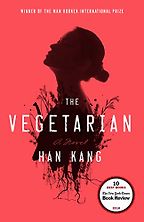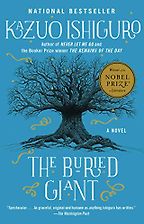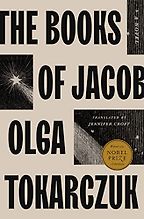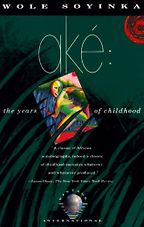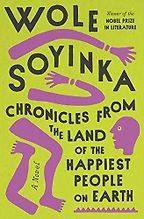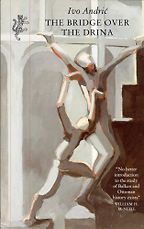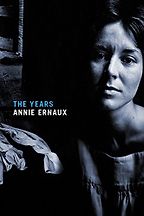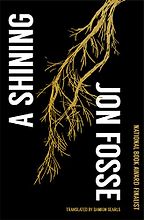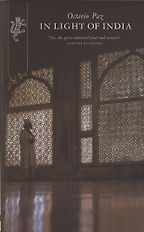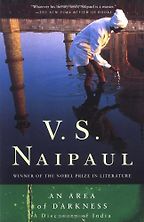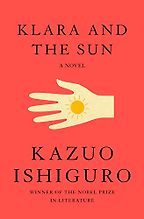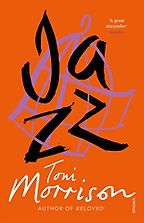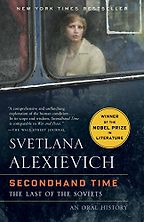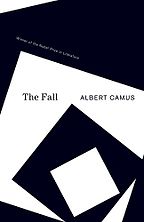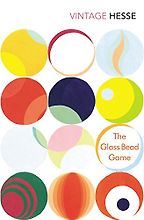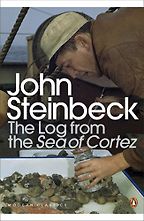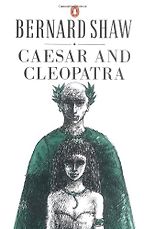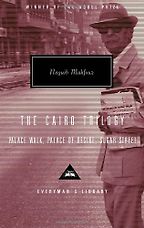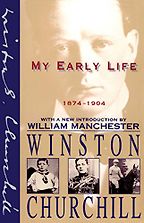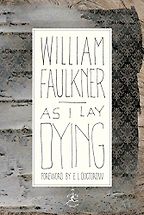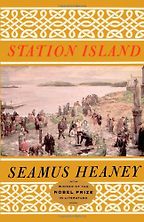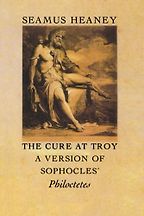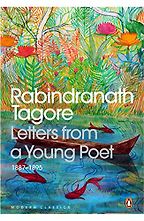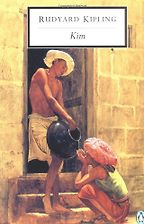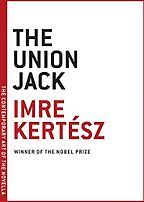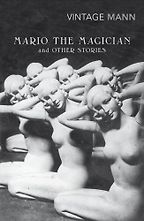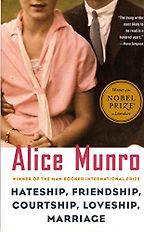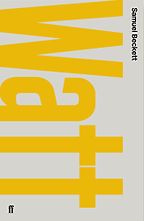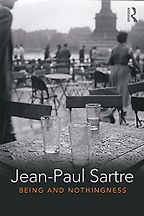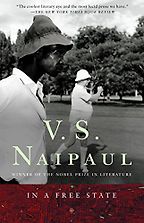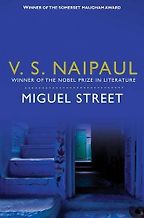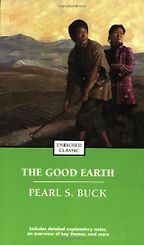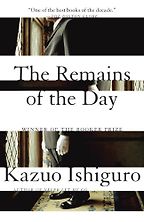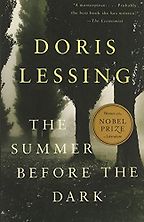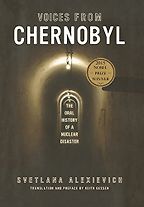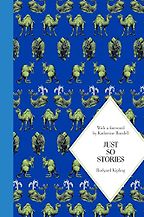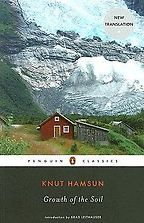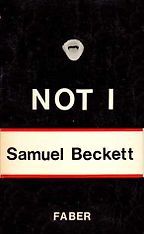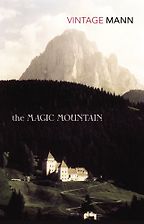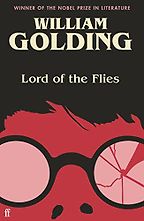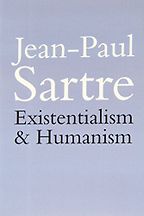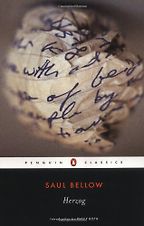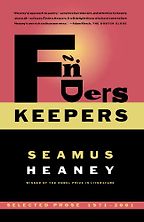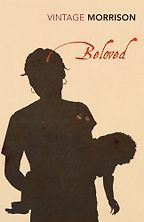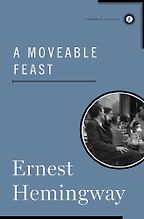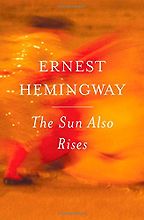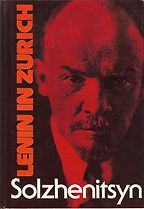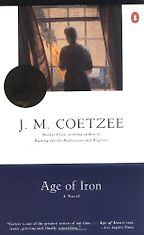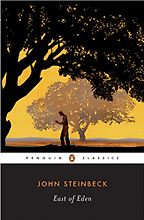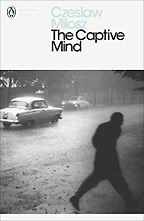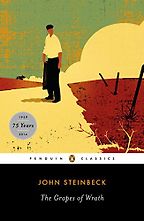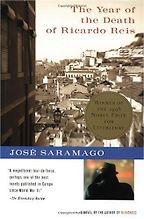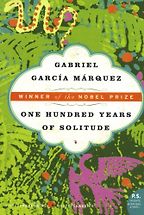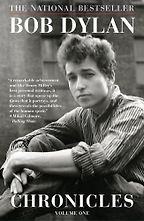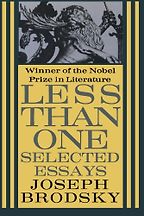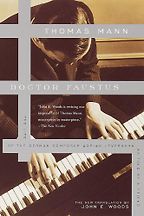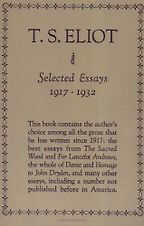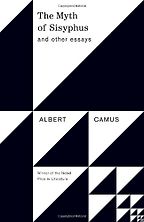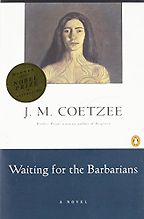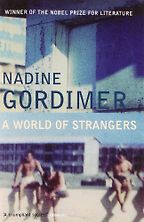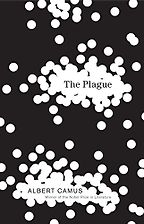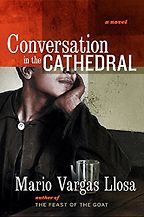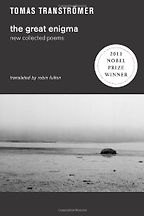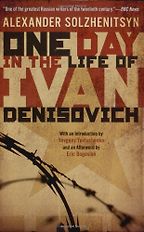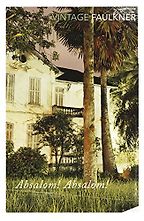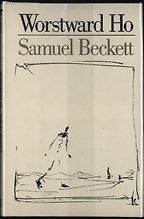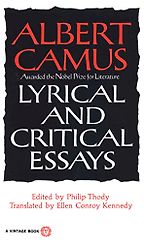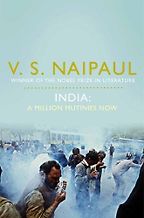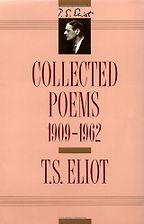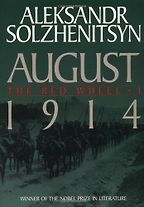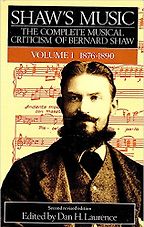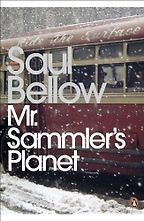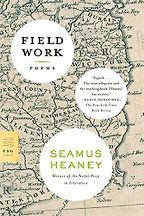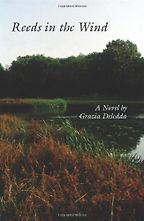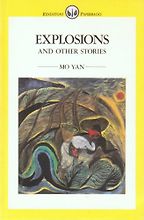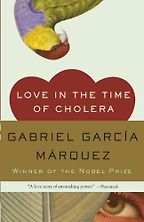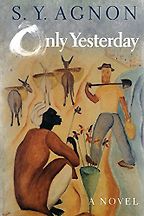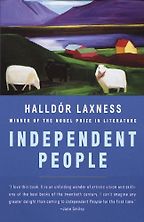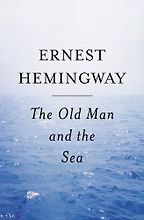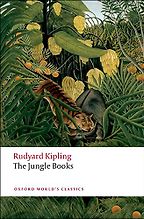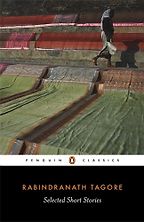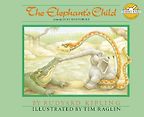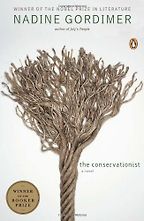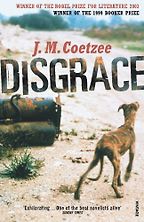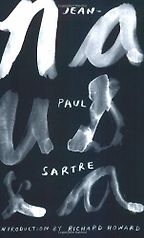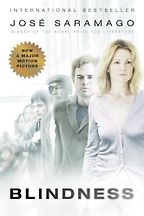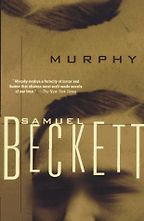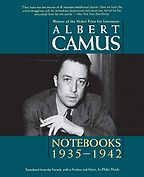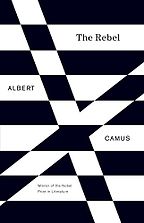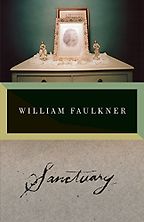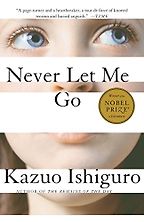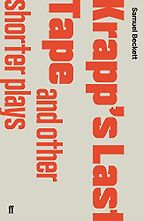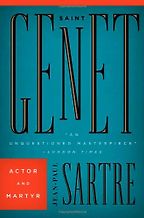Best Books by Nobel Prize in Literature Winners
Last updated: July 02, 2025
The Nobel Prize in Literature, probably the most prestigious prize an author of books can aspire to, has been awarded annually (with some breaks) since 1901, with more than 115 winners. Alfred Nobel's will stipulated that the prize should go "to the person who shall have produced in the field of literature the most outstanding work in an ideal direction", and its winners include not only novelists and poets but also philosophers and politicians. It is also an impressively international list, drawing attention to the authors from around the globe, writing in an array of languages.
The most recent winners have been: South Korean novelist, short story writer and poet Han Kang (2024), Jon Fosse (2023), Annie Ernaux (2022), Abdulrazak Gurnah (2021), Louise Glück (2020), Peter Handke (2019), Olga Tokarczuk (2018), Kazuo Ishiguro (2017), Bob Dylan (2016), Svetlana Alexievich (2015).
Below, we've collected together all the times books by winners of the Nobel Prize in Literature have been recommended on Five Books. These books were chosen in interviews on an array of topics.
“A common thread in much of the South Korean literature I’ve read in translation, and something I love, is the focus on the average person…The Vegetarian is a novel about a woman called Yeong-hye. The first part of the novel is narrated by her husband, who describes her as being completely unremarkable. She’s a homemaker. She makes his dinner. She’s quiet. She wears black slip-on shoes. She’s a gentle presence that is always perfecting her surroundings. She can be seen as an accoutrement to the lives of those around her. I’ve chosen this book because it’s about how a seemingly average person is capable of extraordinary acts.” Read more...
“I absolutely love this book. It’s extraordinary. It’s essentially about memory and forgetting. It’s about terrible atrocities that have happened between different groups of people and how they can then manage to live together, and how they can break out of cycles of revenge and trauma…It’s a mistake to read historical fiction as a history lesson and I think Ishiguro absolutely does not want us to do that. His book features Gawain as a character, for instance, a mythic character. It also features a dragon, who symbolizes important themes in the book. The country is covered with a mist, which is making people forget. He is not trying to write a book that teaches us about what the period was like.” Read more...
Best Medieval Historical Fiction
Marion Turner, Biographer
The Books of Jacob: A Novel
by Olga Tokarczuk, translated by Jennifer Croft
***🏆 A Five Books Book of the Year ***
“This book is attempting to embrace an entire world and culture, a particular period in Poland and Eastern Europe, and fold it into everything that can be known. It is a maximalist novel in that sense. There’s the theology of it, but also how market garden towns worked, how peasants lived, what beliefs people had and how those were challenged or changed. Both The Books of Jacob and A New Name are dealing with the numinous, a sense of God. But Jacob Frank is an apostate, he’s someone who is prepared to overturn centuries of his own religion in an attempt to create something new. Thanks to Olga—through Jenny—we get to witness this vast pageant of what it means to have lived through that time in Poland. It’s like a very, very large Bayeux Tapestry. But also, what it is to look back on that, given what we know now, because there are outside observers.” Read more...
The Best of World Literature: The 2022 International Booker Prize Shortlist
Frank Wynne, Translator
“This is one of Wole Soyinka’s earlier memoirs. He chose a moment in his childhood, from when he was four to when he was 11 and he represented that. He wrote in the voice of an adult – Wole Soyinka, and he was able to capture the magic of childhood and his growing up and the complexity that he faced in a changing culture, the emerging Western culture encroaching on the traditional African culture…He uses particular tropes such as family, commerce, etc, to develop this theme of change. So, for example, using an institution like religion. His mother is called Wild Christian in the book, which exemplifies her total commitment to her religious belief…One other thing he uses very well is the Second World War. The book is set in the 1930s and 1940s, and, without overtly mentioning the war, you still have references to Hitler and the soldiers passing through the village.” Read more...
Helon Habila, Novelist
“The Nobel laureate’s first novel in almost fifty years is billed by the publisher as ‘at once a literary hoot, a crafty whodunit, and a scathing indictment of Nigeria’s political elite’, which features stolen body parts, Yoruba royalty and a murdered engineer.” Read more...
Cal Flyn, Five Books Editor
“Written in 1943 by the Bosnian Nobel Laureate Ivo Andrić, this is a novel about the darker side of the Ottoman Empire – the enforced labour of local Christian subjects in modern day Bosnia. Commissioned in 1572 by the Grand Vizier Mehmed Pasha, the famous bridge. which still stands today, is the epicentre of a community that experienced all the turbulence of the Balkan region throughout the last few centuries of Ottoman rule. This is a 20th century classic.” Read more...
“It’s one of those books that enriches your idea of what literature can do. It’s a really brilliant work. The rhythm of both the ideas in play and the words is incredibly seductive…It’s this notion of what you do with memory. It discusses an incredibly important 60 years and is a very important record of the female experience across those six decades. I think it does an extraordinary job as a record of the shared experience over those years. It’s also hugely, hugely enjoyable.” Read more...
The Best Novels in Translation: the 2019 Booker International Prize
Bettany Hughes, Broadcaster
“Look out for the new book from Jon Fosse, A Shining, which will be released 31 October in the US and 1 November in the UK. It’s a surreal, dreamlike sequence set in the Norwegian woods, in which the narrator’s car becomes stuck in a rut on a remote track. Like his remarkable Septology, which floored me last year, the English translation is by the US writer Damian Searls—who learned Norwegian specifically to translate Fosse.” Read more...
Cal Flyn, Five Books Editor
“If one were to put these books into an order in which they should be ideally read, I would actually put the Octavio Paz book In Light of India as number one. That is easily the most accessible and stimulating book or introduction to India that you can read. It is very briskly done, with a kind of poet’s brevity, and covers astonishingly wide regions of politics, art, literature and the economy.” Read more...
Pankaj Mishra, Political Commentator
“I don’t think there’s ever been a writer, since Gandhi, who looked at India with such sharpness and such clarity. And I’ve never read another that has moved me so viscerally. I think anyone who wants to understand India today should read this book.” Read more...
The best books on Contemporary India
Kapil Komireddi, Journalist
“Ishiguro is one of these novelists who is writing science fiction, but it’s not science fiction as we normally encounter it. It’s not the invention of a completely different world. Instead he takes one or maybe two conceits, and then explores their consequences in a setting that is relevant and immediately relatable to normal life. His writing is always so clear, spare, and vivid—and Klara and the Sun is no exception…literature has always been about understanding what it’s like to be a person, what it’s like to have a stream of thought, to be a human, to be an individual, or to be another individual. And that’s a key part of the story. Klara and the Sun is an absolutely remarkable example of how to develop this understanding. In ways I don’t yet know, it will no doubt make me think about my own work differently.” Read more...
Best Books on the Neuroscience of Consciousness
Anil Seth, Scientist
“It’s set in the 1920s and in it there’s a beautiful commingling of jazz, Harlem streets and a sense of romance and possibility. The novel, formally, feels like a piece of jazz. It feels like riffs and improvisations and recurring refrains. In that sense it’s a fairly experimental novel, which is perhaps why it hasn’t been as seized upon, or lauded, within her oeuvre. Again, I think it’s a novel of desire and intoxication, something we keep coming back as we talk about New York and its fictions.” Read more...
Hermione Hoby on New York Novels
Hermione Hoby, Journalist
Secondhand Time: The Last of the Soviets
by Svetlana Alexievich
☆ Shortlisted for the 2016 Baillie Gifford Prize for Non-Fiction
“The power comes from the stories themselves, the people she found and talked to. Some are in the Caucasus and different parts of the country, people trapped in different Republics, who then face terrible discrimination and have undergone horrible experiences. There are others who, at the time property rights were being established, had their houses or apartments stolen from them by mafia groups. In some ways, this book is backward looking because it’s reminding people how fast Russia has changed and how many people that change has left behind. It’s about how dark the lives are of some of those people, who were brought up in a completely different environment. The book doesn’t have a traditional narrative structure. It’s not one you read in a straightforward way. It’s one you dip into, or pick up and become absorbed by for an hour or so and then step away from. But as a piece of reportage, it’s an extraordinary achievement.” Read more...
Stephanie Flanders, Economist
“This is my absolute favourite novel by Camus. It’s very short… One of the things that makes this one so interesting, particularly once you get a sense of who Camus was as a person, is how autobiographical it is and how much of this is him putting himself in the seat of judgment, trying to make sense of his own place in the world, his own decisions, and the impact that he’s had on other people… The narrator is telling the story of how, as he’s on the way home from work one night, a woman jumps from the bridge into the river and there’s this moment where he’s able to make a decision. He can turn back and save the woman, or he can continue on his path.” Read more...
The Best Books by Albert Camus
Jamie Lombardi, Philosopher
“There’s the ideas of mathematics, of philosophy, of music all brought together in this game, the glass bead game…When I read that book I thought, ‘Yes, this is the game I want to play.’ That’s what I try to do in the work that I do, to combine my love of music, to explain why music and mathematics have these common themes, to bring mathematics alive through the theatre, write the books I do. That’s my ultimate aim, to become a master of the glass bead game. It’s the book I took on my desert island when I was asked to do Desert Island Discs. I just think it is a magical book.” Read more...
The best books on The Beauty of Maths
Marcus du Sautoy, Mathematician
“I had no idea Steinbeck was interested in science. I thought he was a novelist of human rights and the American working class. This book is the log of a journey he made with a scientist he befriended while he was living in Monterey in southern California. They go on this boys’ trip, hiring a retired sardine fishing boat for nine weeks and going to collect invertebrates – crabs, lobsters, snails. It’s about amateur enthusiasm for the natural world and Steinbeck is a truly great science writer. He conveys a boyish enthusiasm for nature but some truly grown-up observations about man’s place in it – a real prescience for an environmental movement that hadn’t arrived when this book was written in 1941.” Read more...
The best books on Being Inspired by Science
Tom Clarke, Journalist
“The Cleft tells of an island of women—an entire female society based on an island—that is, suddenly, “disrupted” by the introduction of a new species: males. No men have ever existed before, and then, out of nowhere, one man appears, bringing sex with him, and so bringing chaos. It’s a creation myth, created out of creation myths.” Read more...
Joshua Cohen, Novelist
“Shaw paints a portrait of Caesar in which all the motivations that romantic biographers and filmmakers like to show as being all for love, were actually driven by hard-nosed, brutal political calculations and realities. Shaw was making comments, in a sense, on the British occupation of Egypt, which had started in 1882, and relating it to the Roman occupation.” Read more...
The best books on Julius Caesar
Peter Stothard, Journalist
“I think first of all that it is a great literary treat. I believe it is a really captivating novel…In my view, what Mahfouz has done brilliantly is to dissect the rich life of the middle class of that multifaceted city and presented it to his readers; he made the readers experience what it feels like to be a middle-class family in the first half of the 20th century in Cairo. This was a very interesting time because Cairo was slowly shedding its conservative Islamic heritage and more or less embracing Westernism. Through tracing the three generations of the family at the centre of the novel you see the change.” Read more...
The best books on The Arab World
Tarek Osman, Foreign Correspondent
Drive Your Plow Over the Bones of the Dead
by Olga Tokarczuk, translated by Antonia Lloyd-Jones
“It’s a murder mystery, and therefore it rattles along, but it’s also a philosophical contemplation on man’s relationship with the natural world, and our relationships to those that we deem to be marginal—at the edge of society—and how we react to them…The title is taken from lines of William Blake and there are passages throughout where characters celebrate Blake’s ideas and philosophies. So it’s incredibly rich, and it’s really transportive, both metaphysically and physically. You feel like you’re inhabiting the spaces and landscapes that are being described. We didn’t know what to expect, and we were all absolutely blown away by it. “ Read more...
The Best Novels in Translation: the 2019 Booker International Prize
Bettany Hughes, Broadcaster
“My Early Life is a more personal book. His memory is certainly not perfect in every respect. He does slip up, and for example says he makes a speech one year, when actually he made it the year before. But I think it’s the book that would be most likely to win you over to liking Churchill’s personality, even if you didn’t share his politics. There’s an ironic, kind of self-mocking tone to it, which I think casts him in a better light than much of his other more self-justificatory writing.” Read more...
“Lust is a novel about rape in marriage, and…about power relationships within marriage. It tells the story of Gerti, who is trapped in a sexually and psychologically abusive relationship—it’s unflinching and it’s possibly the most relentless of Jelinek’s novels, which is saying quite a lot. I don’t think Jelinek is interested in plot. She’s not even interested in psychology. She does play a lot with fairy tales—she has written a series of works for theatre that are sometimes referred to as the Princess Plays, or the Princess Dramas, and which deconstruct figures like Snow White or Jackie Kennedy. And I suppose there is a simplicity to the narrative structure, that is fable-like. But it’s the darkest version of a fairy tale, in which daily violence is a key part. It’s more Brothers Grimm than Disney.” Read more...
Katie Kitamura on Marriage (and Divorce) in Literature
Katie Kitamura, Journalist
“Actually, thinking about it now, I would have liked to put As I Lay Dying (1930) on here, not least because it’s also a genuinely great comic novel. The line where the doctor says of Anse Bundren, ‘you could have stuck his head into the saw and cured a whole family’ is so pithy. I love it.” Read more...
“Seamus Heaney’s poetry is so magnificent it’s difficult to do it justice. He engaged with politics and with the violence of the Irish struggle in a complex way. He says the poet is ‘stretched between politics and transcendence.’ In Station Island he goes back to his roots to look at his communal ties, his early beliefs and the dead of his past. In the center of the Station Island sequence, the speaker is visited by ghosts, some literary, some with a personal connection to him, some of the dead who died in the violence. It’s Heaney accounting for who he is in the midst of this violent political struggle, in the midst of complex cultural currents.” Read more...
Phil Klay, Military Historians & Veteran
“The Vice President loves Irish poetry. Heaney is one of his favorites. He often quotes the last of these lines: ‘The longed-for tidal wave / Of justice can rise up / And hope and history rhyme.'” Read more...
Ronald A. Klain, Lawyer
“t’s not one of his best-known books, but in my opinion, it is one of his very best. It’s a collection of letters to his niece. And when he wrote these, in most cases, there would have been absolutely no thought of publication, which makes their quality all the more remarkable. You might think of this book as an eastern epistolatory nature philosophy. It contains passages of astounding beauty about the natural world that Tagore was inhabiting, which was basically the river deltas around Calcutta. It also contains his reflections on how these give us a very different sense of what’s important and of how to live than one gets in the city. It’s a sort of Eastern counterpart, as I see it, of Romanticism, and again, very visionary.” Read more...
Rupert Read, Environmentalist
“Kim is the story of a young boy who falls in with a Tibetan lama and joins in with the lama’s search for his spiritual goal. I have always loved the book because of Kipling’s wonderful writing. I think it is Kipling’s greatest book. I also love it because the descriptions of India at that time are so vivid. Bear in mind what I said earlier about the way that the British were, on the whole, encouraged not to get too closely involved with India – encouraged to live separate lives. One of the great features of Kipling’s genius is the way that he did learn so much, and did get so involved in the life of India and Indians.” Read more...
Mark Tully, Foreign Correspondent
“This is one of the most beautiful short novels, or novellas, ever written. And only one thing ever happens: Kertész’s narrator looks out a window and sees a jeep go by flying the Union Jack. That’s it. But just the sight of this flag, and the context of the sighting, reminds Kertész that there’s an outside world: a world beyond Hungary, a world of freedom.” Read more...
Joshua Cohen, Novelist
“The story is about a family vacation. The narrator, his wife and two young children—all German—travel to the town of Torre di Venere, a little town in Italy, in the 1920s. It begins with joy and enthusiasm and quickly deteriorates when the family meets the phenomena of Italian nationalism and Fascism. At the centre of the story is a hypnotists’s performance that ends in an unexpected and tragic way.” Read more...
David Grossman on the Books That Shaped Him
David Grossman, Novelist
“Any Alice Munro story is a horrid story to boil down to an elevator pitch. I still don’t even know what the story “Nettles” is about, except I know that it’s about a woman who feels at home in the Alice Munro universe: she’s a writer, she’s a Canadian, she’s a mother, she’s sexually alive.” Read more...
Lauren Mechling, Journalist
“This is perhaps even more unique than his other writings…Here, Beckett finally seems to find his own voice…Purely linguistically, it is completely different. In its arrangement, the syntax predicts Beckett’s change to French in 1945 and 1946. It is a book that shows him reformulating who he is as a writer and finding his voice. That, for me, is why it’s such a fascinating book. At the same time, it’s just one of the funniest books by Beckett purely because he pushes his critique of rationality to its absolute limit. It shows the irrationality of rationality if taken to extremes.” Read more...
Mark Nixon, Literary Scholar
Being and Nothingness
by Jean-Paul Sartre & Sarah Richmond (translator)
***🏆 A Five Books Book of the Year ***
This is a new translation of Being and Nothingness: “When you read the book having read large parts of the previous translation, it feels like putting on a pair of new glasses”
“This is a book that was published during the Second World War in occupied Paris by Sartre, who has since become known as a great existentialist thinker alongside his lifelong friend and lover Simone de Beauvoir. Being and Nothingness became the Bible of existentialism…Although this book is threateningly abstract in places, it’s also fundamentally practical. It’s about the nature of what it is to be human…For me personally, I became interested in studying philosophy because I wanted to try and understand some of Being and Nothingness and Sartre’s ideas…You’d be surprised how many philosophers have been inspired by Sartre, even though they’ve gone on to become very different sorts of philosophers from him…Being and Nothingness has got these amazing novelistic passages. Most famously, there’s the example of the café waiter. Sartre is sitting in a café, watching a waiter who he thinks is in ‘bad faith.’ It’s a kind of self-deception, a denial of his own freedom to be other than he is in terms of his role and what other people expect him to be.” Read more...
The Best Philosophy Books of 2018
Nigel Warburton, Philosopher
“This was the first book of his I came to, and it remains for me his most shocking and blistering. I’ve probably read the opening suite of stories twenty times, while flinching away from the painful novella of the title. Naipaul’s work can be harsh, but it is nearly always moving.” Read more...
Esi Edugyan on Books That Influenced Her
Esi Edugyan, Novelist
“I appreciate the intimacy and humour of the book, it feels so true to the Caribbean. It captures our idiosyncrasies, and the experiences of living in a small place. And it represents my favourite kind of collection: stories that all together bloom and bloom, revealing a larger world. But like many Caribbean people, I have a complicated relationship with V.S. Naipaul.” Read more...
Alexia Arthurs, Novelist
The Good Earth
by Pearl Buck
Pearl Buck was the winner of the 1938 Nobel Prize in Literature “for her rich and truly epic descriptions of peasant life in China and for her biographical masterpieces”
“O-Lan, the mother in this book, gives birth to two sons and two daughters, one of whom she strangles in infancy because there is not enough food to sustain the family. She’s born a slave. She’s plain and coarse. She toils silently and stoically all her life to provide for her family and is basically never rewarded. When her husband gets a little wealthier, virtually the first thing he does is take in a concubine.” Read more...
The best books on Being a Mother
Amy Chua, Lawyer
“British actor and director Dominic West gives a pitch-perfect performance as the narrator of Ishiguro’s hauntingly beautiful novel. His Mr Stevens, an ageing butler looking back upon his life in service with mounting regret, is a carefully-constructed shell of English restraint, within which tempests rage. Listening time is 7 hours and 5 minutes” Read more...
“Around the time when the idea of the midlife crisis was being popularised in the 70s, there was a spate of novelistic representations of midlife crises. The Summer Before the Dark is emblematic and symptomatic; it’s a canonical depiction of the stereotypical female midlife crisis of the 1970s. It’s about a forty-five year old woman who has grown-up children and whose husband is going away for work for six months. She is at a loss with what to do with herself, but she happens to be fluent in several languages and gets hired by a global foods company. She goes off to Istanbul and begins a series of adventures about which she’s very conflicted and ambivalent.” Read more...
“Alexievich is a Belarusian investigative journalist, essayist, and oral historian. In 2015, she became the first journalist to win the Nobel Prize for Literature. The wider literary aim of all her books is to capture the lost cultures of Soviet and post-Soviet communities…The Chernobyl disaster had a devastating impact on the community that was there in terms of all the lives lost and the environment becoming toxic—and with that a whole way of life, a whole cultural memory and way of being in the world. ..Alexievich writes about this book as being a missing history.” Read more...
The best books on Tech Utopias and Dystopias
Mahlet Zimeta, Philosopher
“I love these stories and the way Kipling addresses the reader as ‘Best Beloved.’ It’s so charming. His pen and ink work is superb. The way he drew is quite beautiful. Really fantastic. The layout again is wonderful to look at. He has such simple backgrounds and then all this incredible detail.” Read more...
Korky Paul on Inspiring Illustrations
Korky Paul, Cartoonists & Illustrator
“As every Russian writer is rolled out of Gogol’s coat, every Norwegian one is an offspring of Hamsun, admittedly or otherwise…He tore apart both the grammar and the lexicon of our language, mixed high and low, dialect and aristocratic speech, and put all the pieces beautifully together again—in the totally new fashion we call contemporary Norwegian literature…We have made a taciturn deal—to punish him postmortem for his political ideas, and simultaneously, and reluctantly, praise him for his contribution to literature” Read more...
Roy Jacobsen, Novelist
“Von Aschenbach has been an artist but a very formulaic one. He’s had great acclaim, but he’s never been struck by the divine madness. And then he is struck. In Death in Venice—as in Plato’s Phaedrus—an erotic madness and artistic madness are merged together; for von Aschenbach the instrument of this merging is Tadzio, a young boy. The mad experience is falling in love with beauty, as embodied in this young boy. What the novel is really asking us to contemplate or judge is: is it the good, or is it the bad kind of madness?” Read more...
Rebecca Goldstein, Philosopher
“They all push our subjective experience to its extreme, they all enact what Lacan calls ‘subjective destitution.’ In every play, the hero is pushed beyond a certain limit, out of the domain in which rules of normal human existence apply; he or she finds him or herself in what Lacan called ‘between-the-two-deaths'” Read more...
Slavoj Žižek on His Favourite Plays
Slavoj Žižek, Philosopher
“Thomas Mann’s The Magic Mountain introduces us to Eros and Thanatos, the twin forces of life and death, and they become the subject of profound meditations and conversation. There’s more than a whiff of spookiness to the work, a fascination with disease, suffering, and death. Mann described his novel as a Zeitroman, a novel that takes time as its subject matter but also captures an entire era.” Read more...
Maria Tatar, Literary Scholar
“I think his imagination was terrible to him, because it was so vivid and he could not escape. He described the intensity of it. Sometimes he said he had to externalise this imagination in order to deal with it because he just couldn’t keep it in.” Read more...
The Best William Golding Books
Judy Golding, Memoirist
“Serious Sartreans get quite annoyed with this book because it’s a very accessible, easy-to-read, non-technical, public lecture. Many Sartreans think that unless you’ve read Being and Nothingness from cover to cover and pored over the footnotes, you don’t really understand Sartre. For them, people like me who say, ‘I like Sartre, I like Existentialism and Humanism’ are a bit like people who say ‘I really like Wagner, that ‘Ride of the Valkyries’ is a great tune.’ …The reason I wanted to include it is that in contemporary Britain, atheists and humanist organisations are keen to stress the cheerful side of atheism…What you see in Sartre represents that tradition in thought pointing to troubling aspects of accepting a world without God. There are difficulties involved. Primarily, it’s this issue around responsibility. Without God, there’s nothing to fall back on as an authority, nothing to tell us what the right way to live is, or what the correct moral code is, nothing to show us what makes life meaningful. We really do have to make that decision for ourselves.” Read more...
Julian Baggini, Philosopher
“What Bellow does — magically almost — is to make the schlemiel into a liberal humanist. Herzog is cuckolded. Here you have this great intellectual, this man who has written a tome on romanticism, Moses Herzog, a prominent professor and what happens? His best friend is making out with his wife and everybody knows about it. The only person who doesn’t know about it is he. That’s a classic comic situation, from Chaucer onwards everybody has always made the cuckold into a comic figure. But here again, Herzog is in control of the narrative. Everything in the book is seen from his perspective…It’s actually one of the most autobiographical works that Bellow wrote. Not only in the sense of being based on the facts of his life, but in that he really draws on his own childhood, on his own use of Yiddish. Bellow was one of the best Yiddish speakers I ever met in my life” Read more...
The best books on Jewish Humour
Ruth Wisse, Literary Scholar
“I don’t want to be accused of being negative about the whole cult of celebrity. Seamus Heaney is part of my redress against this. One positive thing celebrities can do for us is to dramatise those values and meanings which we think of as important and commendable. They can do that in the tormented way of a gossip magazines or the admirable, generous-hearted but always accurate way which you find in Seamus Heaney’s collections of both poems and essays.” Read more...
The best books on The Cult of Celebrity
Fred Inglis, Social Scientist
“Beloved was Morrison’s fifth novel. It’s a gripping story, inspired by a famous abolitionist case, the true story of a woman who runs away from slavery with her children, but when the slave catchers catch up with her, she kills one of her own and tries to kill the others, rather than returning them to slavery. The specter of slavery is unrecognized and unnamed; it is embodied in a ghost-like, other-worldly figure. It’s a novel about trauma and psychic scarring, but it’s a novel that points toward a necessary reckoning with what she calls the black and lonely dead, those lost from the Middle Passage, through abolition to the racial violence of the twentieth century.” Read more...
The Best African American Literature
Farah Jasmine Griffin, Literary Scholar
“We think of Hemingway as an American writer, but much of his writing is set outside of the United States, just as much of his life was set outside of the United States…A Moveable Feast takes place in Paris. It’s Hemingway’s memoir of the time he spent there with his first wife and it was stitched together by his last wife. It gives you the sense that he yearns for his first wife and the time when they were young together in France. Very often transnational literature is concerned with abrogating an implicit border of belonging. And very often it concerns the question: Does one have the right to be where one is or where one wishes to be? But in A Moveable Feast one never gets the sense that Hemingway questions whether he can or should be in Paris. There seem to be no visa issues or racial questions. Perhaps there is a sense of entitlement to the expatriate experience that the rest of transnational literature lacks. At the same time, it’s a book about a border that cannot be crossed—the border between past and present. Hemingway is reaching back into his past. It turns out even our most manly of writers can be wistful.” Read more...
The Best Transnational Literature
Mohsin Hamid, Novelist
“Many people don’t appreciate what a big commitment writing this novel was for Hemingway. He was used to writing short stories. It meant he had to spend a lot of time on one book that could have been spent more profitably writing short stories. Like many of Hemingway’s later novels, it is stitched together from shorter pieces – in this case, what he’d already written about Pamplona…It can be summed up by the phrase ‘grace under pressure’, and looks at the code of ethics that emerges from bullfighting. It starts in Paris and then goes to Spain. The main event is a bullfight in Pamplona. The main characters are a group of expatriates, including a Jewish man, Robert Cohn, who was a boxing champion at Princeton. The narrator, Jake Barnes, was injured in World War One and his impotence is strongly suggested.” Read more...
The best books on Hemingway in Paris
Wai Chee Dimock, Literary Scholar
“In this novel, we read about how an average man experienced the Cultural Revolution. The Cultural Revolution had a huge impact on Gao Xingjian, and it’s an experience which speaks to many people in China. By reading One Man’s Bible, anyone can empathise with that experience. He combines reality, history and literature very well. Gao Xingjian is also an exiled writer. If he was in China, he wouldn’t be able to write this book. Of course, writers inside China such as Yu Hua and Mo Yan can also write about the Cultural Revolution, but the Cultural Revolution they write about is not the Cultural Revolution Gao Xingjian writes about, because they are subject to state censorship.” Read more...
The Best Chinese Dissident Literature
Ma Jian, Novelist
“I chose this book because it’s a work of fiction, and fiction is sometimes better at giving you a sense of the man than fact. Lenin, though a historical figure, is also a mythical figure. For many, he was not really a human being. His statue was in every town in the Soviet Union. He became a cult. Whether you love him or hate him he’s a sort of god, and as such he’s very difficult to recover through purely historical materials. What Solzhenitsyn has done is rescue Lenin from that weirdly effacing fame. Of course it isn’t the real Lenin he gives you, but it’s the sense of a real human being, written by a man who had thought about Lenin a great deal.” Read more...
The best books on The Russian Revolution
Roland Chambers, Biographer
“The author is JM Coetzee, the Nobel prize-winning author and, in my view, one of the top five living writers in the English language. Age of Iron is quite a short book – you could probably read it in a couple of hours. It’s set in mid-1980s South Africa, a time of tremendous political ferment. Mandela was imprisoned in 1964 and what followed for the next 10 years was a grave-like quiet of resignation by black people. In 1976 the first simmerings of rebellion occur and by the mid-1980s you had clashes daily in practically every township all around the country. You had the black political movement in full-on insurrectionary mode. It’s against that background that the novel is set. But Coetzee doesn’t go out and give you vivid descriptions, he’s never overtly political, he’s concerned much more with conveying a moral atmosphere.” Read more...
The best books on Nelson Mandela and South Africa
John Carlin, Journalist
“Sinclair Lewis isn’t thought of these days as a funny writer, but his portrayal of the fictional Midwestern bore Babbitt is very funny, and it’s been ripped off many times – usually a sign that something works.” Read more...
Andy Borowitz recommends the best Comic Writing
Andy Borowitz, Comedians & Humorist
“The philosophical question that’s really animating the story isn’t the drawbacks of polarized thinking, but the limits of human freedom. Aron and Cal are only the latest iteration of a moral struggle that has wracked their family for decades. Their role in the novel is to illustrate the possibility that all of us might escape the confines of our original character and circumstances and reach freely toward either good or evil.” Read more...
Helena de Bres, Philosopher
“The Captive Mind isn’t a straight memoir. Although Milosz is writing about his own life and his past, he is also grappling with a larger subject: How his generation of liberal intellectuals came to collaborate with, and work alongside, the Communist party. And he is trying to understand his own behaviour: Why did I act that way?” Read more...
The best books on Memoirs of Communism
Anne Applebaum, Historian
“This was first published in 1939 while the US was still grappling with the Depression, and what is brilliant about it is that it reveals that economic problems can’t just be dealt with through some wave of the free-market magic wand. It’s a very harrowing read…His sense of people finding themselves hugely disadvantaged is something that has a modern-day connotation – the whole debate about immigration today is tied up with this. In both cases it’s about migrant labour. In The Grapes of Wrath it’s migrant labour from within the US, and it’s those people who are often the most vulnerable. This is the human aspect of that story, and I think that Steinbeck summarised much of what happened in the Great Depression far better than many economists did, because he really dealt with the true losses that came through for people who just happened to be down on their luck.” Read more...
The best books on Globalisation
Stephen D King, Economist
“A few years ago, I discovered two authors whom I confess I had known nothing about before, and I discovered them in translation. One was WG Sebald and the other was José Saramago. It was the shock of my life. I was stunned by The Year of the Death of Ricardo Reis. I read it in Giovanni Pontiero’s translation and I was so overwhelmed by the book – both by Saramago’s vision of the world and by the beauty and skill of the translation – that I started to devour Saramago novels, one after the other.” Read more...
Edith Grossman, Translator
One Hundred Years of Solitude
by Gabriel García Márquez, translated by Gregory Rabassa
“What García Márquez does is tell a story of the history and culture of Latin America from the point of view of the ordinary person. He manages to do that through this deadpan narrator who can mix the savagely real with the wonderful, and narrate a family saga which is also a history of Latin America. This book really put Latin American literature on the international map because it is a novel which, while deeply Latin American, is also accessible to all readers.” Read more...
The Best Latin American Novels
John King, Literary Scholar
“Dylan has had a career of extraordinary richness and variety. Yet here he is writing a memoir that completely ignores everything which made him a world figure. It ignores all of his most famous songs, it ignores all the periods in which he was a great star. It’s all about times when he was trying to learn, when he was confused and lost but absolutely alive with the thrill of discovering new ideas, new singers, new information. It’s a marvellous, eyes-wide-open partial-autobiography. It’s also wonderfully written; the words are alive on the page. It clearly wasn’t co-written or talked into a tape recorder. It’s a great piece of writing.” Read more...
Greil Marcus, Musicians, Music Critics & Scholar
“Brodsky lived through the first part of the siege as a baby, in a one-room flat on the Liteiny, right in the centre of town. He brilliantly describes the atmosphere of the postwar city: the bombed-out buildings – ‘haggard and hollow-eyed’ – and the feeling of emptiness, of crowding ghosts. He’s good, as well, on how pinched and harsh life continued to be well after the war. One of his earliest memories is of being given a white bread roll – not a common black one – for the first time. It was such an event that he ate it standing on a table, surrounded by admiring adults.” Read more...
The best books on The Siege of Leningrad
Anna Reid, Journalist
Doctor Faustus: The Life of the German Composer Adrian Leverkuhn As Told by a Friend
by Thomas Mann, translated by John E. Woods
“It’s extraordinary. It’s set in Germany in the early decades of the 20th century. Adrian Leverkühn is this fictional German composer who has a likeness to Arnold Schoenberg in that he develops a 12-tone system. He also makes a deal with the demon Mephistopheles—to create wonderful music for a certain time before being taken off, like Faust in the legend, to a horrible fate.” Read more...
Caspar Henderson, Journalist
“It’s not a biography of Dante in the ordinary sense, and I don’t think Eliot thought of it as such. I chose it because he sets out a schema that was of huge importance to Eliot’s life and achievement. You don’t have to have read Dante’s The Divine Comedy to know that the inferno is followed by purgatory followed by paradiso. Eliot argues that this is a universal life and a universal pattern, and he wanted to tap into that pattern. It’s the schema of a life which moves from a sense of sin to an awareness of a broken-down life – a Waste Land life – and which moves deliberately through a purgatorial phase of suffering. One could say the equivalent was Eliot’s poem “Ash Wednesday”. In some sense Eliot remains a purgatorial poet, always looking towards a paradiso that he didn’t attain. He shared with Dante that sense of sin and introspection. Dante was, to him, the greatest exponent of the soul’s journey.” Read more...
Lyndall Gordon, Biographer
“The Myth of Sisyphus is a small work, but Camus’s meditation on faith and fate has personally been hugely important in developing my ideas. Writing in the embers of World War II, Camus confronts in The Myth of Sisyphus both the tragedy of recent history and what he sees as the absurdity of the human condition.” Read more...
The best books on Morality Without God
Kenan Malik, Science Writer
“Waiting for the Barbarians was the Coetzee book that I was always most attached to – I think it’s the Coetzee book that most South Africans are attached to. Coetzee takes the mood of the 1980s state of emergency – when people were being detained and disappearing and there was a fear of communist or black madness on the borders – and he makes it more interesting by creating this partial allegory of some unnamed empire…It’s about a magistrate. He works for the empire, you don’t know what the empire is and you don’t know what century it’s taking place in. The magistrate is trying to administer law and order, he’s trying to be a figure of some kind of justice. And all the time there’s fear that the barbarians are about to invade and take down the empire. All sorts of draconian measures and violations of decency are carried out in the name of emergency. Needless to say, it ends unhappily.” Read more...
The Best South African Fiction
Imraan Coovadia, Novelist
“A World of Strangers is Gordimer’s best novel. It’s reminiscent of EM Forster’s Passage to India – it is written in a very British mode…In some ways the book is about what happens to people when they come to a big city and how South African black people – who were 98% rural at the beginning of the 20th century – become urbanised, semi-residents of the city, where they had to have a pass and exist on sufferance at all times.” Read more...
The Best South African Fiction
Imraan Coovadia, Novelist
“It has been said that he did extensive research for The Plague. The ‘plague’ is generally taken to be a metaphor or meta-commentary on Nazism during World War II. I’m not necessarily sold on that as the exclusive interpretation of the novel. Other people have argued that he was reading about plagues during the time that he was writing this. But one thing that’s really interesting in the background is that, for at least a period of time while writing the novel, Camus was trying to recover from a bout of tuberculosis and he was staying in a village in southern France in the Free Zone (Vichy). The remarkable events that took place there were the basis for the book called Lest Innocent Blood be Shed by Philip Paul Hallie. In this small, poor, rural village they banded together and pooled their resources to save somewhere between three and five thousand Jews from the Nazis. Camus was in this village as this was happening, as people were hiding, as they were separated from their loved ones, while he himself was separated from his loved ones. So, I’m not sure to what degree the astute nature of his writing can be attributed to his reading about previous plagues, or to his first-hand experience of being bedridden with an illness, embedded in a town where people were hiding from a much more militaristic and malignant sort of ‘plague’.” Read more...
The Best Books by Albert Camus
Jamie Lombardi, Philosopher
“It was a difficult choice because he has written some 14 major novels. He is a writer who changes with every novel, adopting a range of different styles. But when I was reading around the Nobel prize, I learned that all the Nobel committee members read this novel when they were deliberating about the prize. And even though I have about four favourite novels of his, that seemed a good reason for picking this one. Conversation in the Cathedral represents a time in the late 1960s when Vargas Llosa was still very committed to the hope of radical social change in Latin America. In this novel he analyses the nature of a corrupt, unjust, hypocritical society that was the Peru of his adolescence, under a military regime. He thought that if you could expose the nature of the corruption you might move on and replace it with something better. He finds ways of telling his stories which are really quite extraordinary in terms of their architecture, their formal complexity and elegance. The title sounds like a religious topic but actually the cathedral turns out to be a seedy bar in downtown Lima.” Read more...
The Best Latin American Novels
John King, Literary Scholar
“Always in the past, the sexy heroines of men’s books have been idiots, but she asserted through her character of Anna that women were brains and bodies and that their brains and bodies interacted. I think that was so revolutionary…It was so important that Doris Lessing came along and wrote a heroine who was sexual and intellectual; she grappled with the issues of socialism, communism, Africa in turmoil, and yet at the same time she lusted for men and talked about the confusions of her love affairs.” Read more...
The best books on Women in Society
Erica Jong, Novelist
“The very first poem is called ‘Preludes’: ‘Waking up is a parachute jump from dreams’. That was totally new to me…It stopped me in my tracks and I found myself opening up my imagination, trying not to force what I was doing, trying to let the language and the experience work for themselves…what enthrals me about Tomas Tranströmer’s work is how it just speaks and it doesn’t impose anything” Read more...
John F Deane, Poet
“It was a critical book – an entirely objective account of a victim in a labour camp. Just one day in an ordinary labour camp. Not exaggerated, not even a particularly nasty day. The most extraordinary part is how is got printed. It ran contrary to everyone in the Communist Party in Russia, but the Novy Mir editor Tvardovsky snuck a copy in to Khrushchev and said, ‘This is awfully good, you ought to publish it’. And he did. It was an extraordinary stroke of luck. And once it was printed, as Galina put it, ‘The Soviet government had let the genie out of the bottle, and however hard they tried later, they couldn’t put it back in’… After One Day in the Life, Solzhenitsyn didn’t publish anything for a long time, but meanwhile he was hoarding the real killer book – The Gulag Archipelago. When he published that, he was arrested and sent to the West in handcuffs. That’s where I met him, in Zurich in 1976.” Read more...
Robert Conquest, Historian
“The classic Faulkner line that everybody trots out is: ‘The past is never dead. It’s not even past.’ Absalom, Absalom! is the great iteration of that line. It’s not even real; it’s become a chimera or a fabrication, another story being told. It’s a live issue that is sustaining and replenishing people. Or, in an awful way, they are kind of yoked to it, doomed to have the same argument again and again and never get to the end of it. Absalom, Absalom!—to the point that it baffles a lot of people—is the greatest exploration of that Southern theme.” Read more...
The Best Historical Fiction Set in the American South
Xan Brooks, Novelist
“It’s a work that shuns adjectives. It’s a work that shuns plot. It’s a work that tries to replicate the act of the imagination. It’s a narrative voice that has no location and has no origin, in many ways, constructing or reconstructing images.” Read more...
Mark Nixon, Literary Scholar
“This is a series of his political and literary essays that give you a sense both of who he was as a critical writer, as an essayist, and as a journalist, but also ties into his philosophy and the ideas that he was trying to make sense of.” Read more...
The Best Books by Albert Camus
Jamie Lombardi, Philosopher
“The book that comes closest to having the narrative energy of a work of fiction on my list is India: A Million Mutinies Now by V S Naipaul, which is why I chose it, in part. There’s this idea of the ‘Great American Novel’, which is deeply flawed because we know there isn’t one America. There are many, many Americas and no novel can hope to capture them all. This difficulty is even more pronounced in India. No novel can really capture the different textures of life there. But A Million Mutinies Now does an excellent job of describing the lives, the hopes and aspirations and frustrations of a diverse cast of Indians who have lived through the last 60 years. Some of them are even older figures, who can recall a pre-1947 India. Naipaul himself is very much a figure in the background in this particular book; he just lets people speak. And what you get through the stories that these people tell to Naipaul is a nuanced picture of the many different personal and political journeys since 1947. It’s probably the closest thing you can get to a good book of fiction about India.” Read more...
Pankaj Mishra, Political Commentator
“I think some of them are considered surrealist, like ‘The Hollow Men’: ‘This is the way the world ends: not with a bang, but a whimper.’ A lot of his poetry has gone into general usage. Being a city person, I also like the atmosphere of the city, of London, the descriptions of fog that I remember from my youth.” Read more...
Mysteries and Other Favourite Books
M C Beaton, Thriller and Crime Writer
“August 1914 is the 20th-century equivalent of War and Peace. But Solzhenitsyn rejects Tolstoy’s belief that individuals can’t change history. Solzhenitsyn viewed 1914 as Russia’s last opportunity to save itself from the Bolshevik horror. It was that moment when people united against a common enemy, but because of political shenanigans, lack of will and incompetence, that was lost. It sounds serious, but he’s quite mocking and joking. It’s a diatribe against Bolshevism and all its horrors and he uses every weapon including humour.” Read more...
The best books on Why Russia isn’t a Democracy
Martin Sixsmith, Foreign Correspondent
“I think all these books are very good for demystifying the whole process of music-making, and George Bernard Shaw was great at that. He represented a school that was aiming at shedding the pomposity and pretentiousness in music criticism. He takes a very witty, very down-to-earth approach. He’ll spend as much time on the officiousness of provincial stewards and ushers as he will on the music and whoever is singing. He’s got a very good eye for those details that make it more relevant and interesting to the non-musical ear. His reviews are so much fun – almost every week I go back to another, and they’ve got brilliant titles as well.” Read more...
The best books on Classical Music
Igor Toronyi-Lalic, Musicians, Music Critics & Scholar
“Mr Sammler’s Planet is really the first and only great classic of neoconservatism. Bellow’s character, Arthur Sammler, is a Polish Jewish émigré who survived World War II, raised on the great British liberalism of the early 20th century. His heroes are figures like H G Wells, a very pragmatic, quite utopian socialist. And Sammler, living in New York, sees and describes – and Bellow with his extraordinarily vivid tactile prose really brings it to life – the actual physical, sexual and moral decay of Manhattan. There is a kind of licentiousness in sexual relations, there is disdain for older, inherited values…Mr Sammler’s Planet made an enormous impression on me when I read it at the age of 18 or 19 when I was in college. It was the first time I had seen this great writer – probably the greatest of all modern American novelists – actually critique liberal assumptions. “ Read more...
The best books on Conservatism and Culture
Sam Tanenhaus, Journalist
“Field Work is about the way we exist within place, the comfort we take from place and what happens when that apparent solidity and belonging is challenged. You can’t really narrow this collection down with ‘this is a good one.’ I’d read you every single poem in it.” Read more...
The Best Books of Landscape Writing
Dan Richards, Travel Writer
“This is by Grazia Deledda, a writer from Sardinia, born in 1871 and died in 1936. She was from a small bourgeois family and was not permitted to study but she wanted to learn so much that she hid in bed at night to read. She started to write early and she sent short stories to several newspapers who published her and she became very famous and won the Nobel prize in 1926. She always wrote about Sardinia and was very linked to her territory. Canne al Vento is about four sisters in the country who stay with their father and don’t marry, but one goes away, is sent away by the father because she is pregnant and is not married. And after 20 years a letter arrives from her son: the woman has died but he says he wants to come to the house of the family and he wants to know them. So this handsome young man comes to the house of these three women who are so excited to see him, the new nephew. They love him, and do their best to welcome him in the big dark house. But, after some time, they realise that he came to see them because he needs money” Read more...
Dacia Maraini, Novelist
“His book for me is like a dictionary to understanding the huge differences between life in the city and the countryside. Sometimes it feels like there is 500 years of difference. The problem is that the young people move to the city and learn so much and then when they go home it is very difficult to communicate with the older generation, who are often peasants who have never been educated or travelled to the next village.” Read more...
The best books on Understanding China
Xinran, Nonprofit Leaders & Activist
“This is about love as opposed to sex. He’s talking about love in all its forms, including unrequited love that goes on for 50 years…It’s partly such a passionate book because of the beauty of the prose, describing love through time and how she found contentment – love, passion and sex all in one. The prose just drips sexuality and sensuality. It’s sexy enough without having to read about deep positions or anything” Read more...
The best books on Sex and Marriage
Kate Figes, Journalist
“Shmuel Agnon is the only Israeli writer who has won the Nobel Prize for Literature. He is still regarded as the best writer in modern Hebrew literature. This book takes place in Jaffa between the end of the 19th century and the start of the First World War…I was very much inspired by his book. I read it three times in order to get the atmosphere and spirit of the place at that time.” Read more...
The best books on Israel and Palestine in Art
Alon Hilu, Novelist
“Independent People is the book that has just bowled me over in the last couple of years, more than anything else I’ve read. It is incredibly moving, about a poor Icelandic farmer who does not want to be dependent on anyone for anything…The book is great because of the author’s ability to create a world utterly different from ours, with a value system so different but also so totally human. I don’t know why he is not better known – he clearly is not obscure, he did win the Nobel Prize. But why hasn’t the whole of Britain read him? It is long, though – Independent People is for when you have a large chunk of time.” Read more...
The best books on Education and Society
Alison Wolf, Economist
“I taught this book to my students during the economic sanctions. And I feel like it gave me some kind of strength to continue. When I read about the struggle of the old man and the blood running from his hands because of the heat of the rope, I would always think, one day we will make it. At that time I had to work three jobs just to make ends meet. I thought I will struggle on and in the end things will come out fine, but they didn’t. We were invaded and our lives were shattered and people changed.” Read more...
The best books on Life in Iraq During the Invasion
May Witwit, Literary Scholar
“Mowgli has great adventures: we have the Bandar-log, and Kaa the snake who at one point almost swallows up Mowgli’s later protector, Bagheera the panther. But there is nobody else…there is that terrible moment in The Jungle Books where he realises how the wolves in general hate him and he just stands there crying…because he has never understood that he was different. There’s a whole world there in that scene. I don’t even know if Kipling realised it when he was writing it, but it’s the utter breaking of innocence, because he thought he was part of them, that he was loved by them, that he was one of them, and then suddenly has to realise that he’s completely different and he’s not one of them.” Read more...
The best books on Childhood Innocence
Ann Widdecombe, Novelist
“It’s a masterpiece and hugely read. If you go to any house in Bangladesh or West Bengal you will find a copy of this collection of stories. In it you will discover everything about the lives of Bengali families. It would be very unfair of me to single out one or two stories because it will undermine the others – the collection is so good.” Read more...
Syed Ashfaqul Haque, Journalist
“I’ve picked the story of ‘The Elephant’s Child’. It’s pure nostalgia. It was the first book I was ever read and the first book I ever wanted to hear again and again and again simply because I just love the language of it. I love the music and the words and the way he writes, things like, ‘the great grey-green, greasy Limpopo River, all set about with fever trees’. I haven’t got a clue what any of it meant, but it didn’t matter. It was just a wonderful way of dropping richness into his language and it makes you smile and feel joyful to be alive.” Read more...
Michael Morpurgo recommends his Favourite Children’s Books
Michael Morpurgo, Children's Author
“If you read her books and you know the history, I think that Nadine’s books are quite closely pegged to real events in Johannesburg and South Africa. And they’re always seen from the position of a white sympathiser – there’s one in every book. Quite often she’s written black characters, but the idea that she’s an African writer, that she has penetrated the African consciousness, it’s not possible…The protagonist is a good man trying to do good things – a businessman who owns a farm he runs as a sort of hobby. But the sense is that your priorities are not necessarily the priorities of the land or the people that you find yourself in. That’s what makes it a very good book.” Read more...
The best books on Being White in Africa
Justin Cartwright, Novelist
“This book was written in the late 90s and although it is very difficult – especially with writers like J M Coetzee – to link the work to the man, my personal reading of the book is that it is a work of profound disappointment and sadness.” Read more...
The best books on Post-Apartheid Identity
Kevin Bloom, Journalist
“It’s just a fascinating book and a great way into existentialism. You might not come out of it with a very sophisticated conceptual system of existentialist ideas, but you do come out of it — well I did anyway! — with curiosity to read more. It leads you on to his great work, Being and Nothingness, which explores the same ideas, but from a philosophical perspective…It’s readable, it’s powerful, it’s sometimes a bit ridiculous, but it’s intense. Although it is a novel, it’s a novelization of philosophical ideas, so you approach the philosophy through one literary character’s individual crisis and you approach that crisis through a sequence of ideas. It’s the story of a man called Roquentin, who undergoes a kind of philosophical nervous breakdown while he’s trying to write a biography of an 18th-century character, the Marquis de Rollebon. He tries to narrate a coherent story about that life, but instead Roquentin finds himself overwhelmed by things. The sheer physical being of the world around him causes a kind of nauseous horror and this crisis leads him to think about what are, in fact, all sorts of existentialist questions: what it is to be free, what it is to be human, what is to be able to look at other people and be looked at by other people, to be in time, to be in history, to try and impose some kind of sense or narrative on the raw facts of existence.” Read more...
The best books on Existentialism
Sarah Bakewell, Philosopher
“This book brings up the question of what conditions are necessary for sanity and what happens when you take those conditions away, and also the idea that mental or physical wellbeing are really quite narrow states. They depend on all things being equal: things like having enough resources, having physical ability and a basic sense of justice and shared logic and so on, and Blindness highlights how far any of us are from becoming mentally unwell and unstable without those.” Read more...
The best books on Mental Illness
Samantha Harvey, Novelist
“if you think about Murphy, what happens if I evacuate character, plot and emotional interest, what remains to this novel? There’s a way in which, when people criticise Murphy, I understand, because there’s a lot that’s adolescent in it – the glee of taking the sacred cow and punching holes in it. But what I like about these books is that they both have a weird sort of warmth and energy and liveliness, almost as if they had tried to empty the novel of character and just can’t quite do it. And there’s a note, too, of genuine humility. Murphy, for example, who is a kind of a Beckett projection, mocks the Puritans, but hates sex. At least the Puritans wanted to have children. Murphy’s not even sure if that’s a good idea.” Read more...
The best books on The Comic Novel
Allen MacDuffie, Literary Scholar
“These notebooks give many insights into Camus as a person, who he was and what he was trying to come to terms with day by day. They are indispensable, I think, for understanding what his larger project was throughout the rest of his writings.” Read more...
The Best Books by Albert Camus
Jamie Lombardi, Philosopher
“This is Camus’ most academic book. It’s his attempt to make sense of the historical, political, and literary influences that have shaped our world, and how they inform our values in an attempt to figure out where we must go next. This is not as lyrical a book as any of the others, although there’s a chapter at the end where he talks about transcending nihilism that is quite powerful and he’s at his most eloquent.” Read more...
The Best Books by Albert Camus
Jamie Lombardi, Philosopher
“I must admit, I hated Sanctuary for a long time and only recently changed my mind. Sanctuary tells an extremely disturbing story: a young woman, Temple Drake, is held captive by a gang of bootleggers in an abandoned house known as ‘the Old Frenchman place’. The novel outlines Temple’s often futile attempts to escape the gang and find the elusive sanctuary Faulkner conjures up in the title.” Read more...
The Best William Faulkner Books
Ahmed Honeini, Literary Scholar
“It’s a difficult book to talk about because one almost doesn’t want to give away the premise, which drops on you like a ton of bricks around page eighty or so… It’s set at a very unusual boarding school where the students are being raised and educated for the absolute darkest of purposes, which they initially have no knowledge of or control over, and prove ultimately unable to escape from.” Read more...
Lev Grossman, Novelist
“It’s essentially a reflection of a life and the way in which, as Beckett had already said in an essay on Proust that he wrote as a young man, that there is no such thing as an individual, only a succession of individuals.” Read more...
Mark Nixon, Literary Scholar
“It’s a biography…of Jean Genet, who was quite famous at the time as a novelist, a playwright, and a poet. But he wasn’t hugely famous. Sartre had been asked to write a preface to a collected works of Genet, and what he ended up writing was a 700-page psychoanalytic tome. He did talk to Genet and studied his writings, which were strongly autobiographical. But to some extent what he was doing with Saint Genet was not just presenting a biography of a particular person, but rather showing how a whole person, with all of their tastes and mannerisms and works, can actually be a manifestation of a single underlying project. In a way, it’s a description of a possible person, a description of how the theory can be coherent and give a story about a person. In that way it doesn’t matter whether it’s actually true about Genet; that’s what I think he means when he deflects with those disarming comments. In many respects, what he’s doing in Saint Genet is rethinking the existentialism of Being and Nothingness because he has abandoned the idea of radical freedom because he’s been persuaded finally that Beauvoir is right about sedimentation. That’s why he cites The Second Sex a few times in Saint Genet…It’s probably the definitive statement of Sartre’s existentialism” Read more...
Underrated Existentialist Classics
Jonathan Webber, Philosopher
